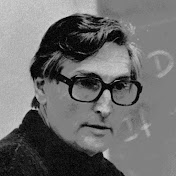Alin Bostan: How to decide if a D-finite power series is algebraic?
A power series is said to be D-finite ("differentially finite”) if it satisfies a linear differential equation with polynomial coefficients. D-finite power series are ubiquitous in combinatorics, as well as in number theory and mathematical physics. In a seminal 1980 article, Richard Stanley asked whether it is possible to decide if a given D-finite power series is algebraic or transcendental. There are several very useful sufficient criteria for transcendence, but none also provides a sufficient condition. One of them is a powerful criterion due to Philippe Flajolet, based on asymptotics of coefficients. Characterizing the algebraicity of a D-finite power series is a highly non-trivial task even if the sequence of its coefficients satisfies a recurrence of order one: this question was completely settled only in 2023 by Florian Fürnsinn and Sergey Yurkevich, building on important articles by Gilles Christol (1986) and by Frits Beukers and Gert Heckman (1989). In this talk, I will present answers to Stanley’s question and illustrate them through several examples coming from combinatorics and number theory.



